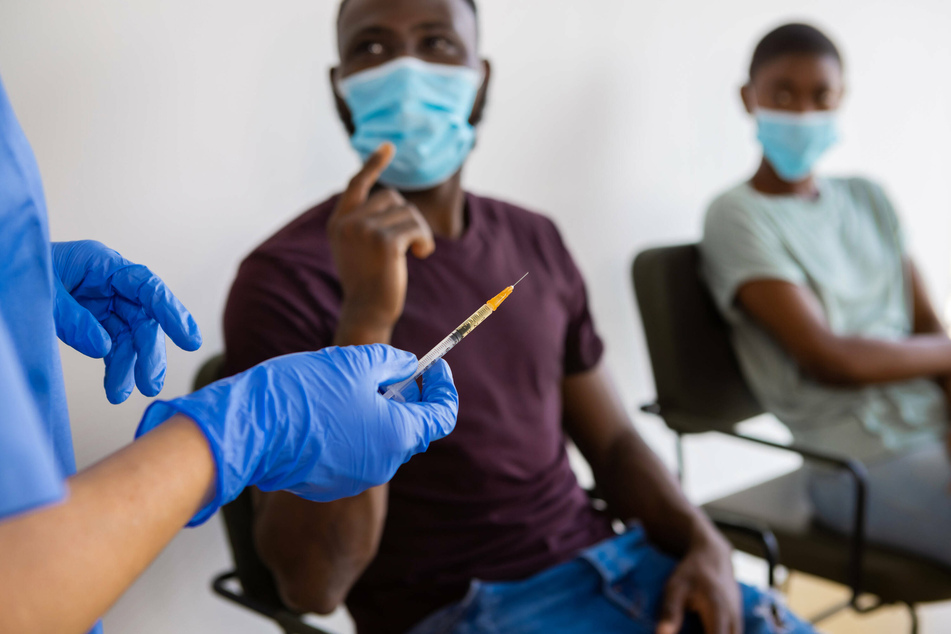US life expectancy drop in pandemic shows price of systemic racism
By Melissa Healy, Los Angeles Times
Richmond, Virginia – By the time a mysterious respiratory disease began circling the globe in early 2020, American life spans had already been under two decades of steady downward pressure from fatal drug overdoses, suicides, gun violence, and chronic illnesses linked to poverty and despair.

Americans were in trouble, with an average life expectancy that had sunk below that of any other affluent country.
Now, new research finds that the Covid-19 pandemic has delivered another crushing blow to longevity in the United States. In just two years, the pandemic that has killed more than 600,000 Americans has slashed close to two years off the average life expectancy.
An American born in 2018 could expect to live 78.7 years, on average. At the end of 2020, that number had fallen to 76.9 years, according to research published this week in the medical journal BMJ.
That precipitous drop – more than eight times steeper than in any other country in the US' economic league – now puts American life spans on par with those seen in Peru, Colombia, Chile, and Thailand. Not since World War II have Americans experienced such a steep dive in longevity.
But those averages hide an even more shocking reality in communities of color. The pandemic's power to shorten the lives of Black and brown people in the US has been even more striking.
In fact, in just one year, the pandemic has wiped out two decades of progress made by Black Americans in narrowing a longevity gap with white Americans.
Scientists say the coronavirus pandemic exacerbated pre-existing inequities

In 2018, a Black American had an average life span of 74.7 years. But by the end of 2020, the life expectancy of a Black American had dropped by more than three years, to 71.5 years. Meanwhile, the average life span for white Americans dropped from 78.6 years to 77.3 years.
In other words, the gap between Black and white Americans grew from 3.9 years to 5.8 years.
For Latino Americans, the pandemic's damage has cut even more deeply. Despite their higher rates of poverty and hardship, US residents who identify as Latino have historically lived close to three years longer, on average, than non-Hispanic whites.
But the pandemic's outsized toll in Latino communities, especially among working-age adults, has all but wiped out that advantage.
In 2018, a Latino resident of the United States could expect to live 81.8 years. By 2020, that had sunk to 78 years.
"Look at the massive disproportionality and the profundity of the insult shown here," said Dr. Clyde Yancy, a Northwestern University cardiologist who has called on colleagues to address racial and ethnic inequities in medicine. "We have to reengineer our societies and healthcare for better opportunity, and for greater health equity. If we had to roll up our sleeves before, now we have to fundamentally start over."
In an editorial published alongside the new research, UC Berkeley demographer Magali Barbieri wrote that the pandemic has "operated as a magnifier of already existing vulnerabilities within the US population."
The United States spends by far the most on healthcare of any high-income country – a whopping 17% of its gross domestic product, Barbieri wrote. But even that won't fix the inequities made plain by the new life expectancy numbers if leaders fail to acknowledge and address the needs of vulnerable Americans, she wrote.
Computing figures for average life expectancy at birth may seem like a sterile statistical exercise. But they are an important measure of a nation's health. In addition to revealing health inequities within a given country, they offer a standard yardstick by which to compare the health of people in different countries.
Childhood vaccination, better pregnancy care and wider use of disease-preventing treatments will nudge a country's life expectancies upward. War, famine, disease, and inefficient use of medical resources will drive them downward. Life span inequities within a country will drag down a country's average and expose systemic discrimination and societal fissures.
Researchers say the US doesn't distribute medical supplies fairly

The paper's senior author, Dr. Steven Woolf, said he is often challenged to understand why the world's wealthiest country – a country that quickly produced a trio of Covid-19 vaccines that are among the world's most powerful – has fared so poorly in limiting the pandemic's toll.
"It's a vivid paradox," Woolf said. "We really do a fantastic job in developing cutting-edge medications and technologies in healthcare, but a pretty lousy job of distributing them fairly. The same thing happens with diabetes, hypertension, and even maternal and child health. ... We have a fundamental problem with providing healthcare and getting it out to the people who need it most."
Woolf, a community health expert at Virginia Commonwealth University, has chronicled the rise and fall of Americans' life spans over several decades. After documenting years of declining US life spans due to drugs, suicide and poverty, he thought he could no longer be shocked by the state of America's health.
It turned out he could.
"We didn't expect to see these huge numbers – a drop in life expectancy 8.5 times the magnitude seen in countries that are our peers," Woolf said.
Most shockingly, however, was how much further the gaps widened between white people and communities of color, he said.
"This was really disturbing," Woolf said. "It reflects the huge loss of life and it demonstrates the price people pay for systemic racism."
Cover photo: IMAGO / Addictive Stock

